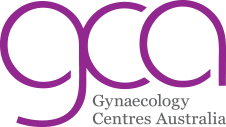The most commonly known symptom of pregnancy is when a woman misses a period or is ‘late.’ Some women just ‘know’ and can sense that their body has changed, others have no symptoms at all and do not find out until they are well into gestation.
When a woman becomes pregnant, her menstrual cycle (the discharge of tissue and blood from her uterus and subsequent surge of hormones, which help to produce a fertile egg) is suspended. This happens as a result of an egg becoming fertilized. This fertilized egg ultimately attaches to the uterine wall and causes the female body to produce pregnancy hormones (progesterone and estrogen). The presence of these hormones works as a trigger for the body to stop menstruation and start adjusting to its new circumstance of ‘growing’ a baby.
If your body has undertaken the aforementioned process and you have discovered that you are pregnant, the next step is to work out how far along you are into the gestation process. Working this out is important, as whether you want to go ahead with the pregnancy or not, your timeline matters.
To work out your potential due date you need to work out the date of your last menstrual period (the first day of your last period). Once you have that date ready to go you can calculate your due date by adding 280 days to the first day of your last period. It can become a little complicated as the calculations are generally based on a 28-day cycle and as all women are different the accuracy of results can vary.
To make the process a little bit easier, you can use Gynaecology Australia’s pregnancy calculator. To use this feature you simply input the required dates, click a button and you will have your estimated conception date and estimated stage of pregnancy. No math, no confusion. Once you have these dates, it is much easier to work out a due date.
To discuss a possible pregnancy, a pregnancy test, planned or unplanned pregnancy contact the team of experts at Gynaecology Centres Australia. We specialise in early pregnancy advice, family planning, provide information on pap smears, Femscreen, contraception, sterilization, Hormone Releasing Intrauterine System (IUS), abortion, fertility or reproductive health advice and a range of other gynaecological services.
Visit one of our five gynaecology clinics in Wollongong, Canberra, Newcastle, Gosford or Sydney – or find us online at https://gcaus.com.au/
